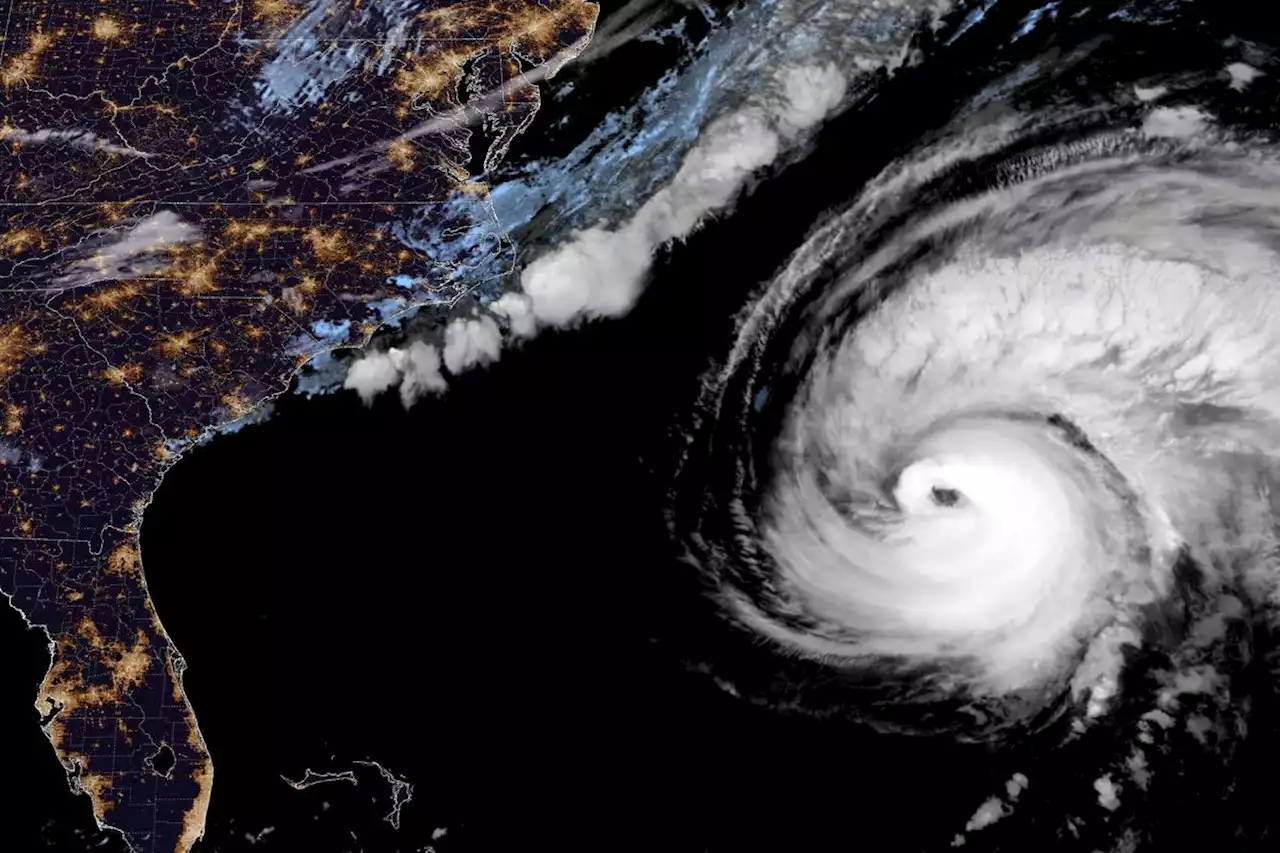Forecasters anticipate this week's consumer price index report to show inflation rose last month, signalling a reversal in progress after a year of steady declines in inflation.
Canada's annual inflation rate fell back to the country's target range in June for the first time since March 2021, tumbling to 2.8 per cent.
The U.S. experienced a similar uptick in inflation last month, as its annual rate rose to 3.2 per cent, up from 3.0 per cent in June. The central bank said the new projections pushed its governing council to hike rates again in July by a quarter of a percentage point as it looks to get inflation down faster.Although Porter doesn't expect the Bank of Canada to raise interest rates again in September, he says it's difficult to rule another rate hike.
"It's a tough decision to keep raising interest rates when the unemployment rate is rising," Porter said.
Canada Latest News, Canada Headlines
Similar News:You can also read news stories similar to this one that we have collected from other news sources.
 U.S. Producer Price Index Rises by 0.3% in July, Exceeding ExpectationsThe U.S. Department of Labor reported that the Producer Price Index (PPI) increased by 0.3% in July, surpassing economists' expectations of a 0.2% rise. Wholesale inflation also rose by 0.8% in the last 12 months, indicating higher prices in the broader economy. The gold market experienced a slight selloff in response to the inflation data.
U.S. Producer Price Index Rises by 0.3% in July, Exceeding ExpectationsThe U.S. Department of Labor reported that the Producer Price Index (PPI) increased by 0.3% in July, surpassing economists' expectations of a 0.2% rise. Wholesale inflation also rose by 0.8% in the last 12 months, indicating higher prices in the broader economy. The gold market experienced a slight selloff in response to the inflation data.
Read more »
 Canada's Net-Zero Energy Plan Faces Opposition from Fossil Fuel Heavy AreasCanada's plan to transition to a net-zero energy grid is facing opposition from fossil fuel heavy areas of the country. The move is seen as crucial for Canada's economic competitiveness, energy transition, and climate change efforts. However, the Alberta and Saskatchewan governments are against the plan. Federal officials argue that the slight increase in energy costs will be offset by the savings from moving away from fossil fuels. Critics argue that the regulations will lead to higher electricity bills, but economists emphasize the need for a cost-benefit analysis in achieving net-zero.
Canada's Net-Zero Energy Plan Faces Opposition from Fossil Fuel Heavy AreasCanada's plan to transition to a net-zero energy grid is facing opposition from fossil fuel heavy areas of the country. The move is seen as crucial for Canada's economic competitiveness, energy transition, and climate change efforts. However, the Alberta and Saskatchewan governments are against the plan. Federal officials argue that the slight increase in energy costs will be offset by the savings from moving away from fossil fuels. Critics argue that the regulations will lead to higher electricity bills, but economists emphasize the need for a cost-benefit analysis in achieving net-zero.
Read more »
 China's Exports Continue to Decline, Casting Doubt on Economic RecoveryChina's exports have been falling since May, with July exports contracting 14.5%. Economists do not expect exports to recover significantly this year. The large data revision is attributed to the crackdown on fake trade, where exporters inflate the value of shipped goods. The reduction in March exports is the biggest cut on record, accounting for 44% of the total exports revision for 2022.
China's Exports Continue to Decline, Casting Doubt on Economic RecoveryChina's exports have been falling since May, with July exports contracting 14.5%. Economists do not expect exports to recover significantly this year. The large data revision is attributed to the crackdown on fake trade, where exporters inflate the value of shipped goods. The reduction in March exports is the biggest cut on record, accounting for 44% of the total exports revision for 2022.
Read more »
 Months after closure of Quebec’s Roxham Road, more asylum seekers arriving by airThe Olympic Stadium in Quebec, funded by taxpayers, costs almost $20 million a year to maintain. Despite generating revenue, the venue's retractable roof has experienced numerous issues and its repair has been delayed. With no local sports team using the stadium and better sound quality at the Bell Centre, economists question the stadium's relevance and the justification for its high maintenance costs.
Months after closure of Quebec’s Roxham Road, more asylum seekers arriving by airThe Olympic Stadium in Quebec, funded by taxpayers, costs almost $20 million a year to maintain. Despite generating revenue, the venue's retractable roof has experienced numerous issues and its repair has been delayed. With no local sports team using the stadium and better sound quality at the Bell Centre, economists question the stadium's relevance and the justification for its high maintenance costs.
Read more »
 Increased Chance of Hurricanes Hitting Canada as Atlantic Ocean Forecasts More StormsThe head of the Canadian Hurricane Centre warns that the new forecast of more storms than average in the Atlantic Ocean increases the likelihood of a hurricane hitting Canada. The primary reason for this estimate is higher than normal ocean temperatures, according to United States officials. The National Oceanic and Atmospheric Administration states that rising ocean temperatures and the delayed arrival of the calming effects of El Niño have doubled the chances of an above-normal hurricane season. The warmer water could potentially allow storms to maintain their intensity for a longer period of time in Eastern Canada during the 2023 hurricane season. U.S. forecasters predict 14 to 21 named storms, with six to 11 becoming hurricanes. However, specific information on hurricanes cannot be provided until storms actually develop.
Increased Chance of Hurricanes Hitting Canada as Atlantic Ocean Forecasts More StormsThe head of the Canadian Hurricane Centre warns that the new forecast of more storms than average in the Atlantic Ocean increases the likelihood of a hurricane hitting Canada. The primary reason for this estimate is higher than normal ocean temperatures, according to United States officials. The National Oceanic and Atmospheric Administration states that rising ocean temperatures and the delayed arrival of the calming effects of El Niño have doubled the chances of an above-normal hurricane season. The warmer water could potentially allow storms to maintain their intensity for a longer period of time in Eastern Canada during the 2023 hurricane season. U.S. forecasters predict 14 to 21 named storms, with six to 11 becoming hurricanes. However, specific information on hurricanes cannot be provided until storms actually develop.
Read more »
 Higher Ocean Temperatures Increase the Risk of Hurricanes in Eastern CanadaForecasters in the United States have increased their estimate for the number of hurricanes this season due to higher than normal ocean temperatures. This raises the possibility that one of these storms could reach Eastern Canada. The U.S. National Oceanic and Atmospheric Administration has stated that rising ocean temperatures and the delayed arrival of El Nino's calming effects have doubled the chances of an above-normal hurricane season. Water temperatures in the main storm development region are at their warmest since records began in 1950. If storms reach Eastern Canada, they may maintain their intensity longer due to the warmer ocean temperatures.
Higher Ocean Temperatures Increase the Risk of Hurricanes in Eastern CanadaForecasters in the United States have increased their estimate for the number of hurricanes this season due to higher than normal ocean temperatures. This raises the possibility that one of these storms could reach Eastern Canada. The U.S. National Oceanic and Atmospheric Administration has stated that rising ocean temperatures and the delayed arrival of El Nino's calming effects have doubled the chances of an above-normal hurricane season. Water temperatures in the main storm development region are at their warmest since records began in 1950. If storms reach Eastern Canada, they may maintain their intensity longer due to the warmer ocean temperatures.
Read more »
